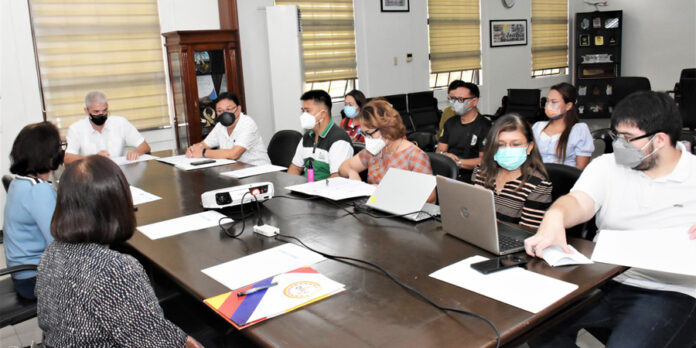Health personnel assigned at the molecular laboratory will be trained on how to detect the monkeypox virus as part of its proactive measures, disclosed Provincial Inter Agency Task Force action officer, Atty. Rayfrando Diaz recently.
The preemptive measures were discussed during the meeting of Provincial Infectious Disease Action and Control Council (PIDACC) chaired by Gov. Eugenio Jose Lacson recently at the Provincial Capitol in Bacolod City.
PIDACC was formed to manage inter-agency collaboration and coordination on the prevention and control of infectious diseases especially emerging and re-emerging diseases in the province.
They are also tasked to formulate and tailor provincial policies and protocols on public health surveillance, prevention, and control of infectious diseases.
“Our worry is that, we are seeing an increasing number of our Overseas Filipino Workers (OFWs) returning to the country, who may have been exposed especially those coming from South Africa, Diaz said, noting that the Philippines has already one case of monkeypox, as confirmed by the Department of Health.
The World Health Organization has declared monkeypox as a public health emergency of international concern.
Upon recommendation of PIDACC, Diaz said there is a need to train the staff of the molecular laboratory on how to conduct RT-PCR tests to detect monkeypox.
Monkeypox is a viral virus transmitted to humans from animals, with symptoms similar to those seen in smallpox patients, although it is clinically less severe, according to WHO.
While the molecular laboratory of the provincial government has the equipment, Diaz said that what they need is to acquire the test kits specific for monkeypox and to capacitate health employees with the necessary skills on handling the samples and conducting the test.
He said it is difficult to detect monkeypox as it takes three weeks to incubate.”
“Once you’re tested positive the quarantine period is nearly three months. The causes of transmission are physical or skin-to-skin contact. We have to be very careful about it,” Diaz added.
He also said that the provincial government has already made representations with the Research Institute for Tropical Medicine (RITM) to train the staff as soon as there are available slots for training.
Diaz added that they are also waiting for new protocols and guidelines from the Department of Health, with regards to the new viral disease. (Gilbert Bayoran via The Visayan Daily Star (TVDS), photo courtesy of TVDS)

